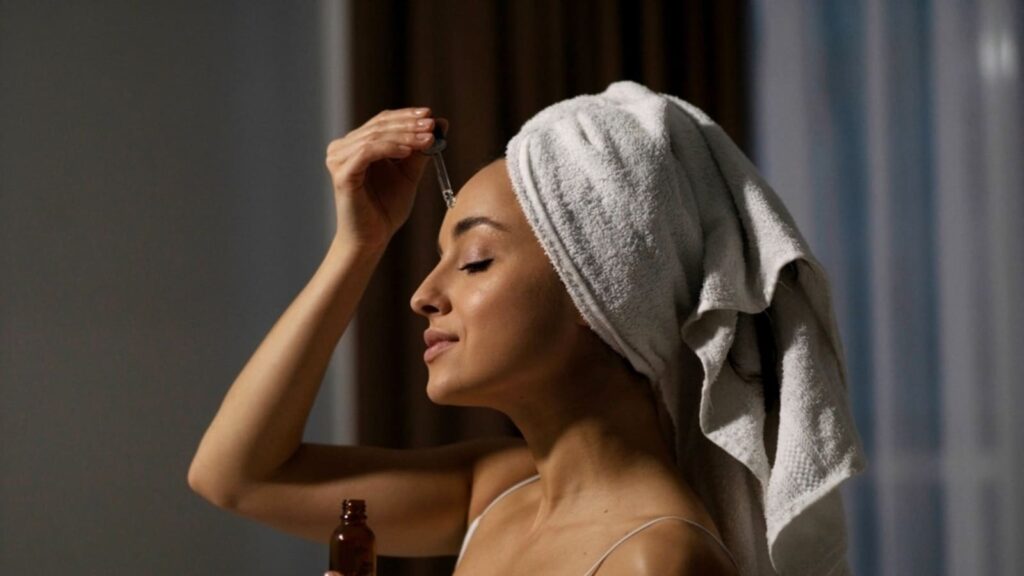970x125
Do you repeat your morning skincare routine at night? While some steps may look similar, should you really use the same routine twice a day? It’s a common beginner-level doubt for those wanting to build dedicated morning and night skincare routines.
970x125
ALSO READ: Say goodbye to sticky skin this rainy season: Doctor shares 8 tips to monsoon-proof your skincare
While it may seem similar, the goals are actually very different for your skin at nighttime. Dr Raina Nahar, Sr. Consultant, Dermatology, Nanavati Max Super Specialty Hospital, Mumbai, told HT Lifestyle that the morning skincare routine is different from night skincare, as the former focuses on protecting the skin while the latter is about repairing and nourishing the skin.
Further highlighting the differences between the two routines, he said, “The morning and night routines are two different skin care rituals that people follow. What is the difference between the two is that during the day, you can incorporate a lot of antioxidants, toners, sunscreens to prepare your skin to deal with sun exposure, pollution, UV exposure, stress, all these and fight it off, in the morning.”
Night routine is geared more towards anti-ageing, unlike the protective nature of morning care, which focuses on shielding from the various environmental stressors, like pollution and UV rays. The dermat further explained,“Your night routine should be such that it repairs the skin from all the stresses the skin has borne during the day, and also for anti-ageing and repair activities, that is why your night-time routine is a different routine compared to your day-care routine.”
Now, because these goals change from morning to night, following a generic skincare routine won’t help. The steps need to be customised as per the skin’s requirements.
Dr Raina Nahar shared a detailed guide, covering all the essentials of a night skincare routine, including steps, skin type-wise differences and tools:
Night skincare steps:

1. Double-cleansing routine:
- Oil-based cleanser: The first step will be an oil-based cleanser/ micellar water. Use an oil-based cleanser (or balm) or / micellar water to cleanse the pores nicely, give it a couple of minutes to cleanse the oil-based residue, all the makeup, sunscreen, grime and excess oil.
- Pore-cleanser: Second, use a pore cleanser (water-based gentle cleanser.) It will cleanse the dust, sweat, and grime, but does not rip off essential oils.
2. Serums:
- Night-time serums are different, and they are very important. They are retinol, which is Vitamin A, it is the most powerful antioxidant, very powerful for antiaging, lines, and pore size, so this is specifically used in the nighttime routine.
3. Moisturiser
- Use collagen and peptide-based moisturisers which are thicker, creamier and help you in anti-ageing and reducing the fine lines. The collagen molecule size should be smaller than the pore size, so it can be more easily incorporated, and the skin can be hydrated.
4. Cream for spots and blemishes (for those who have acne)
- If people have acne, then after moisturising step, they can use their anti-acne ointments, as per the direction of the dermat.
- If one has acne-prone skin, they can also include salicylic glycolic acid, benzoyl peroxide in the night-time routine.
Fine-tuning night routine as per skin type

- For an ageing skin: Incorporate collagen, hyaluronic acid, retinols
- For dry skin: Include peptide ceramide-based moisturisers.
- For oily skin: One can use mild, gentle moisturisers which don’t clog the pores.
Using Gua Sha
- Can also incorporate Gua Sha, which is a simple tool to promote the lymphatic drainage.
- It helps you to tone your skin, helps reduce water retention, and to nicely gives a nice massaging effect. It also helps in anti-ageing and contouring the face.
Note to readers: This article is for informational purposes only and not a substitute for professional medical advice. Always seek the advice of your doctor with any questions about a medical condition.
970x125

